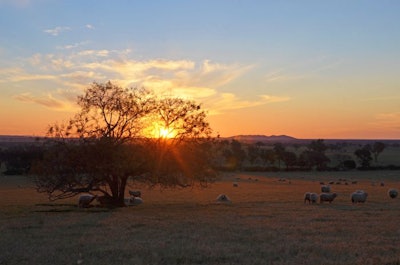
Heavy rains bring some relief, but much more is needed
Bushfires are adding to the effects of long-term drought across Australia, causing animal feed shortages and price spikes.
Demand for animal feed in Australia has risen sharply beginning in 2018, and drought – which has lasted three to five years in some places – has affected grain production. Additionally, supplies of livestock feed and fodder have been destroyed by bushfires in some places. Feeding the flocks and herds that have survived the fires is another challenge facing farmers, as many locations are isolated from supply chains, and bringing hay into fire zones only increases fire risk.
According to a recent report, fires in early January resulted in a flood of livestock feed orders, adding to the feed shortfall and causing prices to rise.
“It is unlikely hay and fodder will ever run out completely, but as the price gets higher, fewer farmers will be able to afford to it,” the report said.
Rain provides some relief
Some relief has come this week as heavy rains have moved across the fire-stricken area in the southeast, but more is needed to end the fires completely.
“There is some rain, but nowhere near enough to break the effects of the drought,” Duncan Rowland, executive officer of the Stock Feed Manufacturers’ Council of Australia, told Feed Strategy in an email. “The fires have eased somewhat, but those areas affected … (are) usually home to 2.3 million head of cattle and 8.6 million head of sheep.”
More than 100,000 sheep and cows were reportedly lost to the fires as of early January.
“Stock losses are still being calculated but there is no feed in this area,” Rowland said. “All of the remaining stock need to be hand fed – fodder or pellets. So, we have increased demand for an already short supply of fodder and grain.”
He said more than 12,500 bales of hay have been shipped to north Victoria in the past two weeks. He also reported firming grain prices over the past two to three weeks due to a lack of sorghum growth but, he said, the rains may allow for small amounts of sorghum to be planted.









